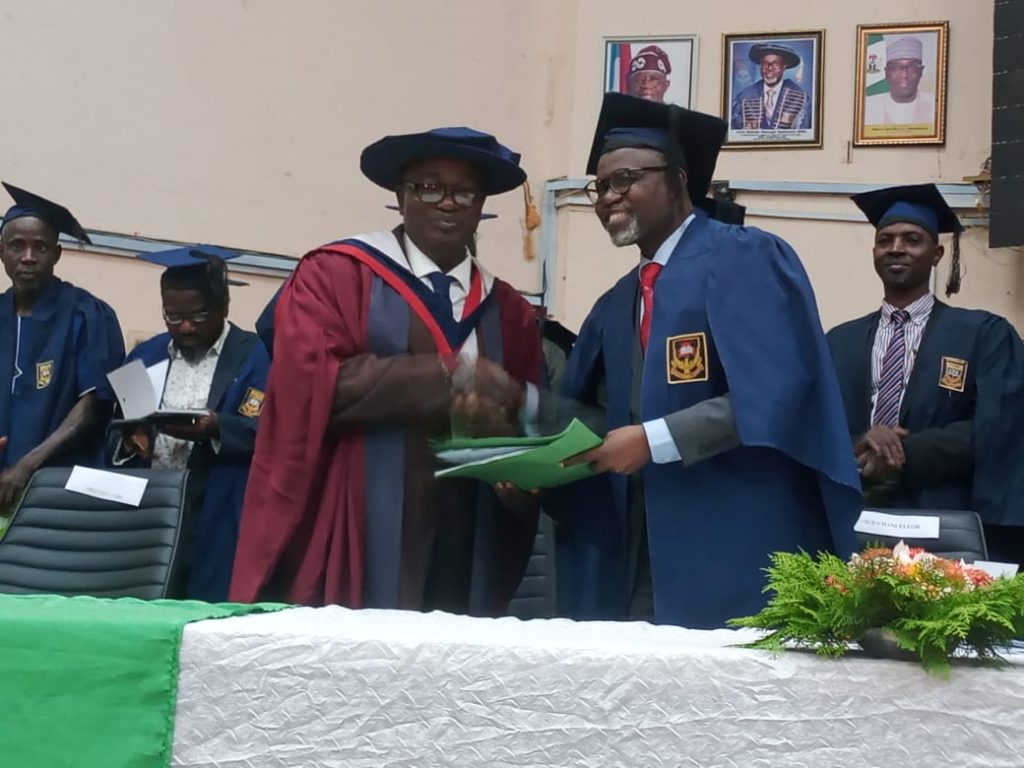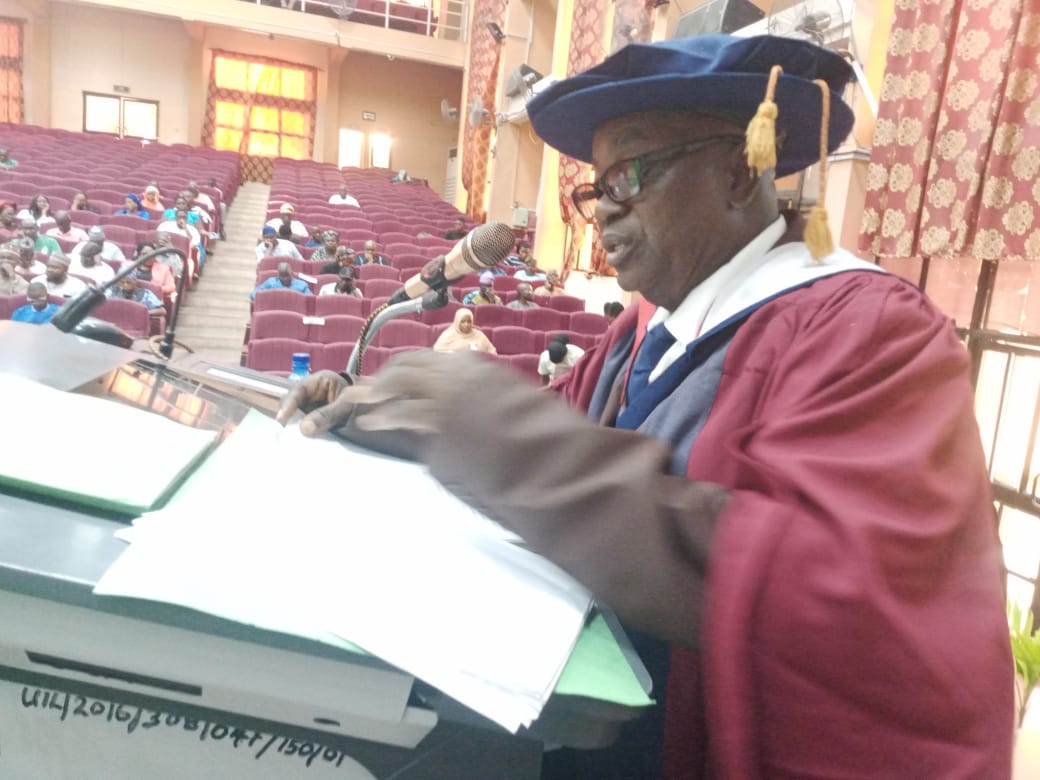By Omotayo Ayanda
In an enlightening discourse, Professor Abayomi Olumade Sofoluwe, from the Department of Educational Management, University of Ilorin, has sparked critical discussions on the state of Nigeria’s educational system, shedding light on critical flaws plaguing the country’s university management.
Delivering the 248 Inaugural Lecture of the Institution titled “Paradigm Shift and Dysfunctionalism in University Educational Management,” Prof Sofoluwe emphasized the pressing need to avoid policies and decisions that transform universities into breeding grounds for national controversy. He underscored that controversies, particularly those stemming from excessive centralization in admissions, appointments, or funding, disrupt the peace, harmony, and rapid development of Nigeria’s esteemed university system.
The lecture delved into the multifaceted challenges gripping the educational landscape, including conflicting objectives, the deteriorating structure, and the resultant production of ill-prepared graduates struggling to secure employment.
Drawing on criticisms from renowned scholars such as Fafunwa, Olutola, and Manuwvike, Sofoluwe highlighted the systemic dysfunctions plaguing educational management, including issues in curriculum diversity, organisational structure, and leadership.
He pointed out the effects of underfunding, citing the disparity in government expenditure between security and education sectors, calling attention to the lack of accurate financial record-keeping.
Dysfunctionalism in education, as outlined in the lecture, encompasses a range of issues from corruption to examination malpractices, posing a severe threat to the sector’s advancement. The misappropriation of international funding meant for education, inflated vouchers, and practices like sex-for-marks were underscored as detrimental elements harming the educational sector’s progress.
To address these challenges, Sofoluwe proposed comprehensive recommendations. Among these, the implementation of a transformational managerial model, goal-setting strategies, and a firm dismissal of participation in commercial activities were advocated.
Sofoluwe stressed the importance of goal-setting strategies like the Delphi Technique and Management by Objectives (MBO) to enhance consensus and organizational effectiveness. He urged the university to redefine, prioritize, and circulate its objectives as outlined in the National Policy on Education (1981), fostering a supportive and inspirational management style.
Furthermore, he highlighted the imperative need for restructuring the university system, strict adherence to university procedures, and an overhaul of budgetary allocations to the education sector.
A pivotal recommendation was directed at the government, urging them to avoid policies that create national controversies in admissions, appointments, or funding. Sofoluwe warned that such controversies hinder the peace, harmony, and rapid development of the university system in Nigeria.
The lecturer underscored the urgency of adopting a transformational managerial model. This model, he proposed, facilitates necessary organizational changes, articulating a shared vision, stimulating intellectual engagement, and respecting individual differences within the academic community.
Furthermore, the lecture addressed the criticality of discarding commercial activities among academics, focusing instead on improving conditions of service, extra-curricular services for students, responsible students’ unionism, and safeguarding academic freedom.
The professor highlighted the necessity for strict adherence to university procedures, advocating for managers to possess strong social and human skills, emphasizing that without harmonious interactions among people, meaningful activity within organizations is untenable.

Moreover, Sofoluwe emphasized restructuring the university system, addressing duplications, streamlining and rationalizing departments and courses, aligning student populations with existing facilities, and providing counseling assistance to address faculty effectiveness.
The lecture’s finale underscored the crucial role of law enforcement in combating examination malpractice and emphasized the need for increased budgetary allocation to the educational sector. Sofoluwe urged the Nigerian government to demonstrate transparency, accountability, and commitment to the betterment of society.
The discourse’s resonance lies in its call for swift action and systemic reforms, marking a turning point in Nigeria’s educational journey. It stands as a pivotal moment, urging policymakers and stakeholders to heed Sofoluwe’s recommendations and embark on a transformative journey to elevate the country’s educational system.
